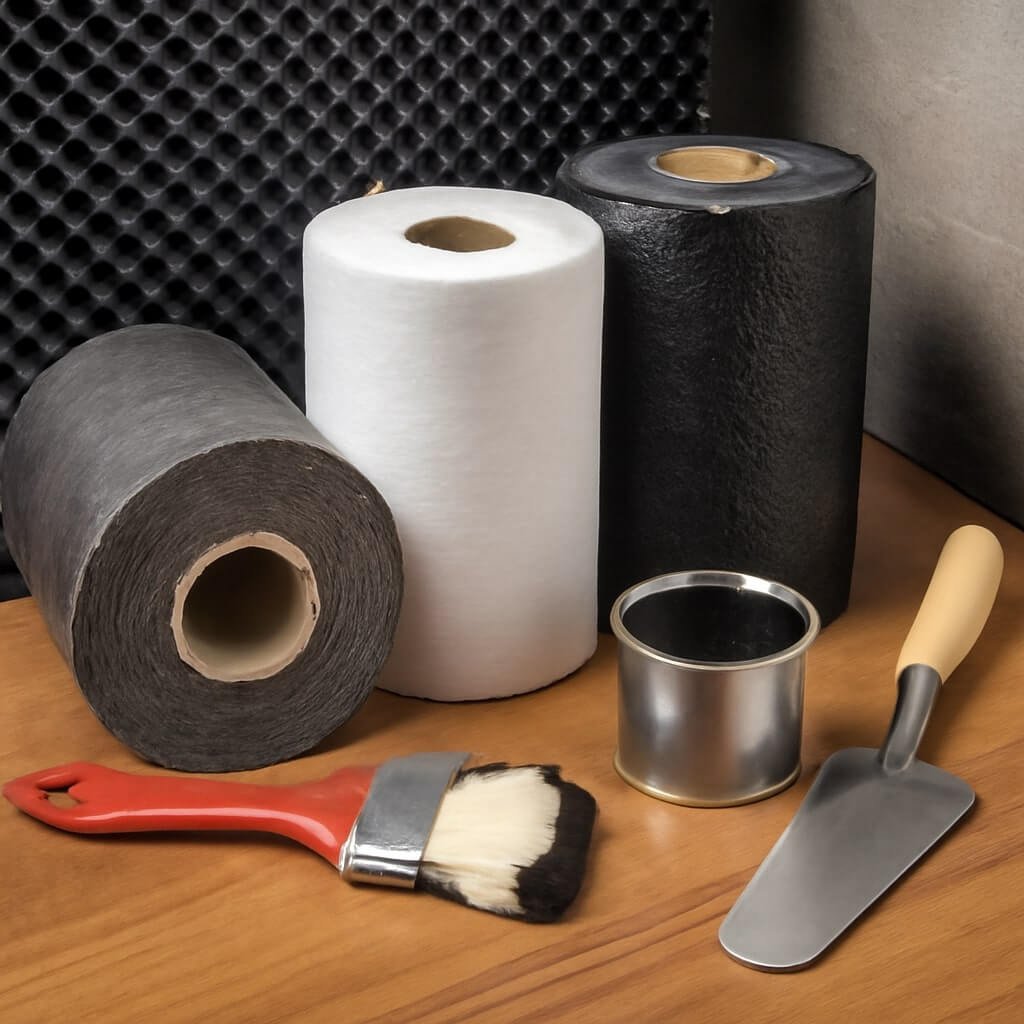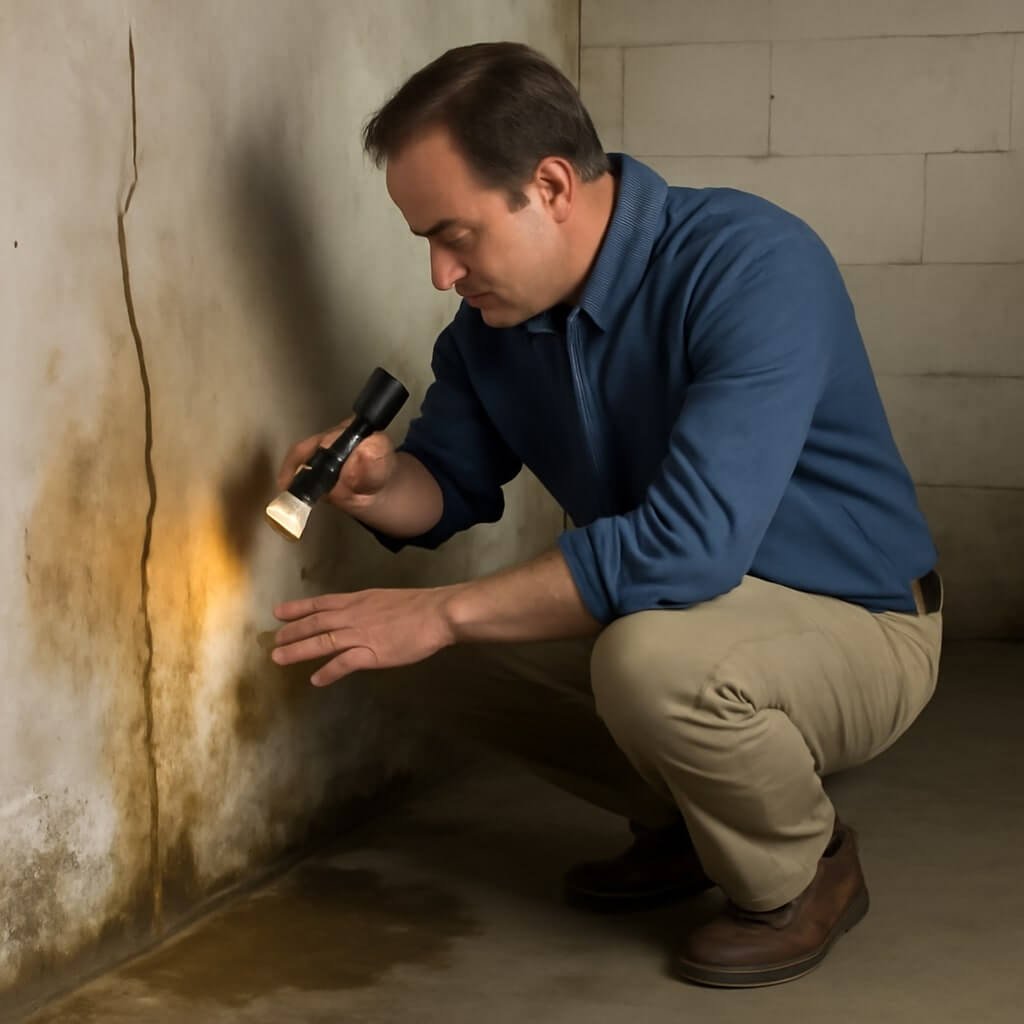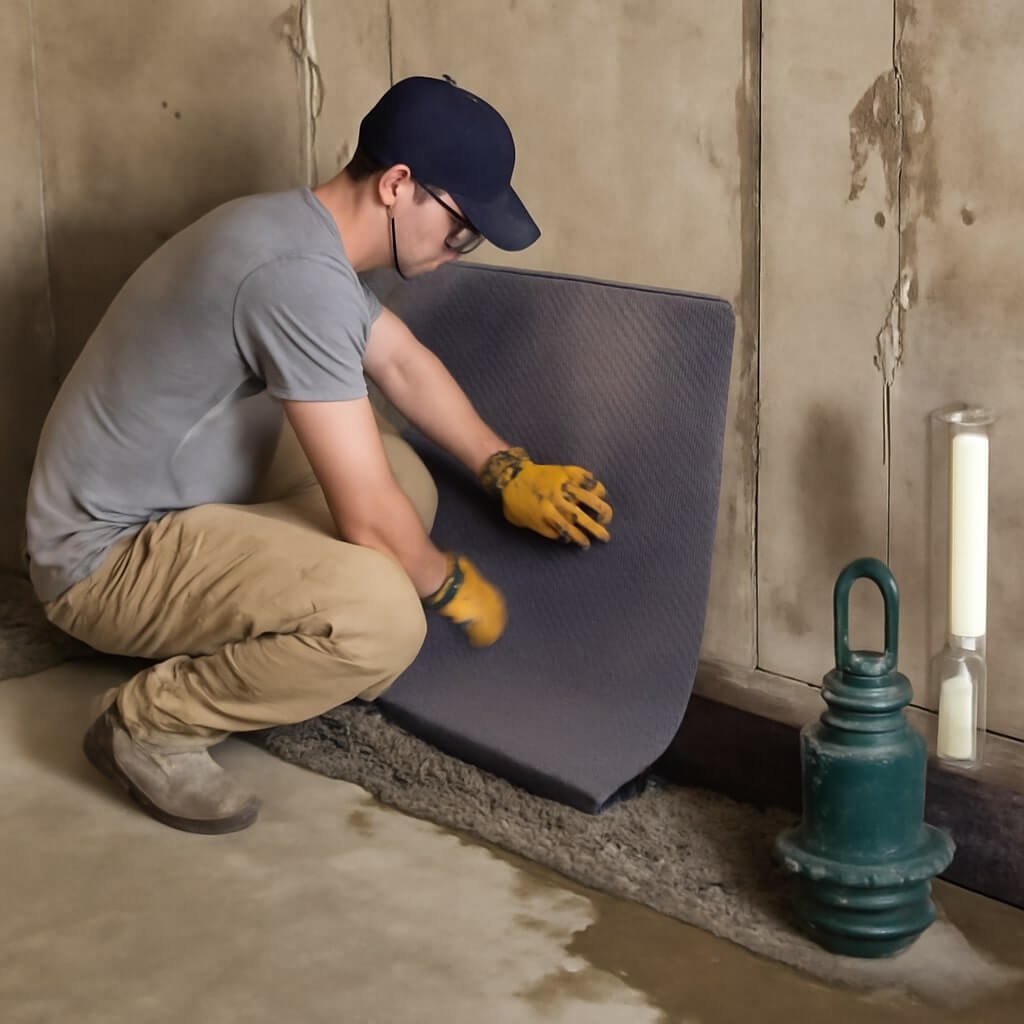Basements are critical parts of any home or building, often vulnerable to water infiltration, which can cause structural damage, mold growth, and costly repairs. Using the right waterproofing membranes for basements is a powerful solution to safeguard your underground spaces. In this article, we explore the top 10 powerful waterproofing membranes that combine durability, effectiveness, and ease of installation to keep your basement dry and secure.
What Is a Waterproofing Membrane?
A waterproofing membrane is a protective layer applied to basement walls and floors that prevents water from penetrating the structure. These membranes act as barriers, blocking moisture from seeping through cracks or porous concrete. They come in various forms, including liquid-applied coatings and sheet membranes, each designed to suit different basement conditions and requirements.
Waterproofing membranes are essential because they provide a continuous seal that resists water pressure, mold growth, and deterioration of the building materials. Without this protection, basements can quickly become damp, leading to unpleasant odors, structural weakening, and health hazards.
Why Basement Waterproofing Membranes Are Essential
Basements are prone to water damage due to their below-ground location, which subjects them to hydrostatic pressure from surrounding soil moisture and groundwater. Even minor cracks or imperfections in basement walls can allow water intrusion, causing:
- Mold and mildew buildup
- Damage to stored items and finishes
- Foundation erosion and weakening
- Increased humidity levels inside the home
Waterproofing membranes create a robust defense that reduces these risks. Their ability to form a continuous, impermeable barrier prevents water migration and protects the basement’s integrity over the long term.
Types of Waterproofing Membranes for Basements
Choosing the right type of membrane depends on your basement’s specific conditions, budget, and installation preferences. Here are the main categories:
Liquid-Applied Membranes
These membranes are applied as a liquid coating that cures to form a seamless, rubber-like barrier. They are easy to apply on irregular surfaces and can fill small cracks, making them ideal for DIY or professional use. Common materials include polyurethane and bituminous compounds.
Sheet Membranes
Sheet membranes are factory-made sheets of waterproof material, often reinforced with fibers or mesh, applied to the basement surface. They provide excellent puncture resistance and consistent thickness. Common types include polyethylene and rubberized asphalt sheets.
Bentonite Membranes
Bentonite membranes are made from natural clay that swells when wet, sealing gaps and cracks effectively. They are often used in combination with other waterproofing techniques for added protection and are valued for their environmentally friendly nature.
Top 10 Waterproofing Membranes for Basements
Here’s a detailed look at the leading waterproofing membranes available in the market today, highlighting their features, benefits, and pricing:
| Rank | Product Name | Type | Key Features | Pros | Cons | Approximate Price (per sq.ft) |
|---|---|---|---|---|---|---|
| 1 | Drylok Extreme | Liquid-Applied | Waterproofs & seals masonry, high vapor barrier | Easy application, durable, mold-resistant | May require multiple coats | $1.50 |
| 2 | Henry Blueskin | Sheet Membrane | Self-adhering, flexible, high elongation | Strong adhesion, UV resistant | Slightly costly | $2.50 |
| 3 | Carlisle CCW MiraPLY | Sheet Membrane | Needs a skilled application | High durability, good for foundation walls | Professional installation recommended | $3.00 |
| 4 | Sika Bituthene | Sheet Membrane | Rubberized asphalt, self-adhesive | Excellent water barrier, tough, flexible | Surface prep critical | $2.75 |
| 5 | Tremco Vulkem 350 | Liquid-Applied | Polyurethane membrane, elastic | Strong adhesion, crack bridging | Needs skilled application | $3.20 |
| 6 | GCP AquaTight Bentonite | Bentonite | Natural clay membrane, self-sealing | Environmentally friendly, excellent swelling | Heavier, requires careful installation | $2.00 |
| 7 | Polyguard 650 | Sheet Membrane | Rubberized asphalt, aggressive adhesion | Long-lasting, flexible | Not UV stable | $2.40 |
| 8 | BASF MasterSeal | Liquid-Applied | Crystalline waterproofing | Self-healing cracks, durable | Requires precise mixing | $2.80 |
| 9 | RedGard Waterproofing Membrane | Liquid-Applied | Elastomeric, flexible | Fast drying, easy to apply | Limited chemical resistance | $1.80 |
| 10 | W. R. Meadows HydroBarrier | Sheet Membrane | Composite sheet with polymer core | High puncture resistance, vapor barrier | Costly, complex installation | Reinforced, vapor-permeable |
How to Choose the Right Waterproofing Membrane for Your Basement
Selecting the right membrane is not just about price or brand. Here are key factors to weigh:
- Basement condition: Cracked, damp, or newly constructed walls need different solutions.
- Climate: Areas with heavy rainfall or freezing temperatures require more robust membranes.
- Installation method: DIY-friendly membranes versus those needing professional installation.
- Durability needs: How long do you want the membrane to last without maintenance?
- Environmental impact: Preference for eco-friendly materials.
- Budget: Upfront cost plus installation and maintenance expenses.
Step-by-Step Installation Guide for Waterproofing Membranes
- Prepare the surface: Clean and dry the walls/floor thoroughly.
- Repair cracks: Seal cracks and holes with appropriate filler.
- Apply primer: Some membranes require priming for better adhesion.
- Install membrane: Apply liquid membrane in coats or adhere sheet membranes carefully.
- Seal seams: For sheets, ensure overlap and seal edges.
- Inspect: Check for gaps or bubbles.
- Protect the membrane: Apply a protection board if needed before backfilling.
Maintenance Tips to Extend the Life of Your Basement Waterproofing
- Regularly inspect for cracks or peeling.
- Keep gutters and drainage systems clean to reduce water pressure.
- Avoid harsh chemicals that can damage membranes.
- Repair minor damage promptly.
- Monitor humidity levels inside the basement.
Common Basement Waterproofing Problems and How Membranes Help
Typical issues include water seepage through cracks, hydrostatic pressure, and condensation. Waterproofing membranes act as a resilient barrier against all these, providing long-lasting protection when installed correctly.
Environmental Impact and Sustainability of Waterproofing Membranes
Modern membranes focus on sustainability by using non-toxic materials and recyclable components. Bentonite membranes are especially eco-friendly. Choosing these options supports greener building practices.
Cost Analysis: Waterproofing Membranes vs Other Waterproofing Methods
Membranes tend to be more cost-effective over time compared to traditional methods like exterior drainage systems or interior sump pumps, thanks to lower maintenance and installation complexity.
FAQs About Basement Waterproofing Membranes
1. How long do waterproofing membranes last?
Most high-quality membranes last 15-30 years with proper maintenance.
2. Can I install a waterproofing membrane myself?
Liquid-applied membranes are often DIY-friendly; sheet membranes usually need professionals.
3. Are waterproofing membranes safe for the environment?
Many are eco-friendly, especially bentonite-based products; always check product specifications.
4. What’s the difference between waterproofing and damp proofing?
Waterproofing stops water penetration completely; damp proofing resists moisture but not direct water.
5. How do I know if my basement needs waterproofing?
Signs include damp spots, mold, musty smells, and visible cracks.
6. Can waterproofing membranes prevent mold growth?
Yes, by preventing water intrusion, membranes reduce conditions favorable to mold.
Conclusion: Protecting Your Basement with the Right Membrane
Choosing the right waterproofing membrane is a smart, powerful way to protect your basement from water damage and the headaches that come with it. Whether you opt for a liquid-applied product or a durable sheet membrane, understanding your basement’s needs and investing in a quality product will pay off in long-term peace of mind and structural safety.




